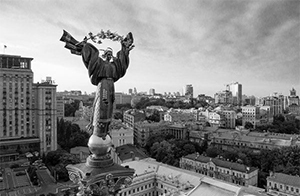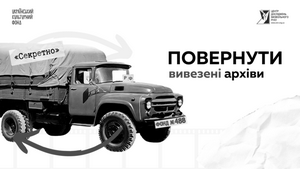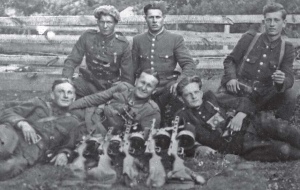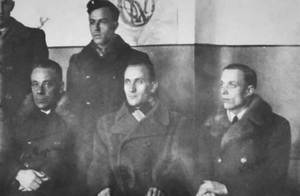Skoropadsky VS Denikin. The last mission of Prime Minister Lyzohub
On November 9, 1918, Military Governor of Odesa Eduard Belts shot himself. Earlier, the commander of the Eastern army, Field Marshal Alfred Kraus, left for Germany. Fedir Lyzohub had no one to talk to. In October preliminary agreement on Crimean autonomy within the Ukrainian State was negotiated with Crimean government delegation, however…

For half a year Fedir Andriyovych Lyzohub headed the Council of Ministers of the Ukrainian State.
Pavlo Skoropadsky described circumstances of offering Lyzohub this position as follows:
"Finally I remembered of Fedir Andriyovych Lyzohub, famous Zemstvo figure, and later, Chief of Stuff with Caucuses Viceroyalty Prince Nicholas Nikolayevich, and, as far as I remember, a deputy of one of the Ministers of Provisional Government.
I did not know him personally, but his reputation proceeded him. After some telegraph delays he arrived to assume the position".
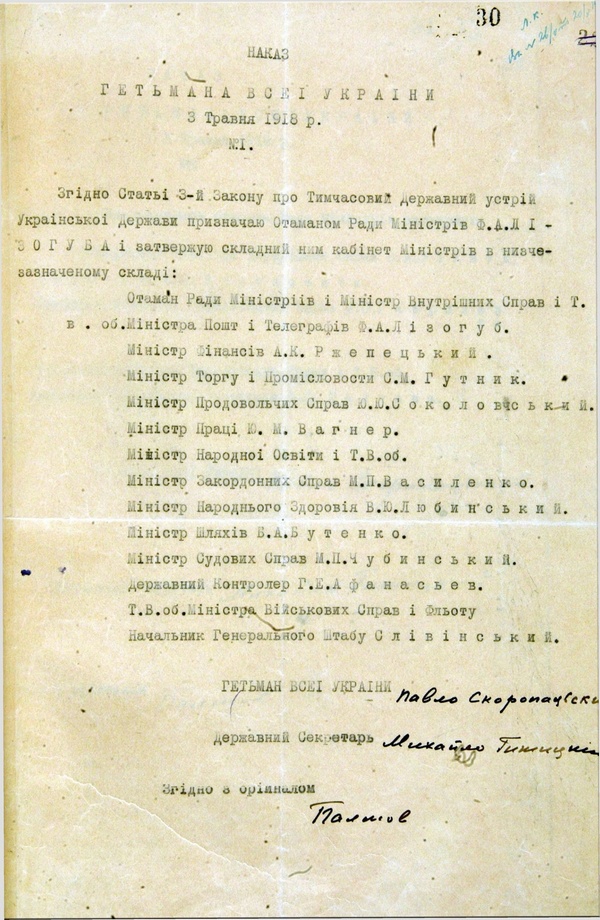 |
| Hetman Pavlo Skoropadsky’s decree appointing Fedir Lyzohub as Prime Minister of Ukrainian State |
Fedir Lyzohub was born on October 6, 1851, in town of Sedniv, near Chernihiv. He belonged to a known family of senior Cossack officers. He was very proud of his descent.
The Ambassador of Bulgaria to Ukraine Ivan Shyshmanov in his diary described his impression of Hetman’s Prime Minister:
"…he told me that for 250 years his family had kept pure Ukrainian blood – no Polish or Russian admixtures. The family’s forefather was a Cossack Chief Justice. He doesn’t speak Ukrainian, since he served at a zemstvo [local government institution –tr.] where they only spoke Russian."
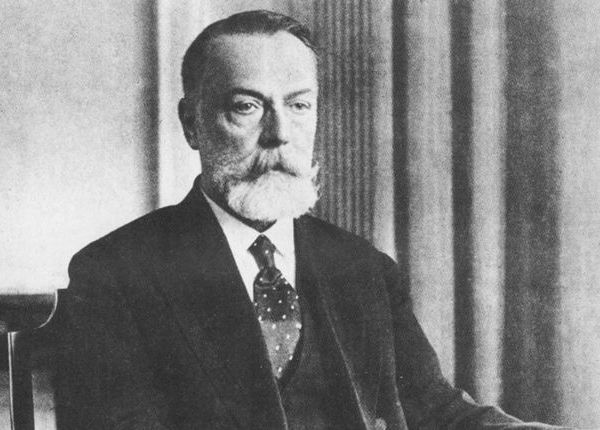 |
| Fedir Lyzohub the Prime Minister of the Ukrainian State |
The Lyzohubs family might be considered an example of complicated fate of the Ukrainian nobility in Russian Empire. His predecessors lived through both tsar’s good graces and persecution. Fedir’s father was friends with Taras Shevchenko. His brother Dmytro, one of the founders of "Narodna volia" revolutionary political organization, was executed for plotting assassination of Tsar Alexander II.
In 1988 Fedir Lyzohub received higher education in agronomy and for almost 10 years served as a member of Gorodiansk self-governing authority. He owned 4 thousand acres of land, and estates in Chernihiv and Kyiv.
For over 15 years he headed Poltava Zemstvo and made a significant contribution into the development of Ukrainian culture in the region. In 1915-1917 he served as Administrative Policy Adviser with the Caucuses Viceroyalty (governor general – tr.) Grand Duke Nicholas Nikolayevich of Russia.
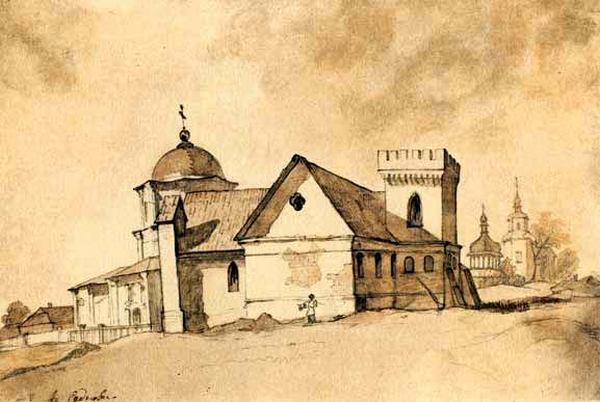 |
| In 1846 Taras Shevchenko painted a picture of the Lyzohubs family estate |
During the Provisional Government of Russia, Lyzohub worked as departmental head in the Ministry of Foreign Affairs. He also headed commission on formulating new procedure of accepting Russian citizenship application from foreign nationals.
After the October revolution in Petrograd Lyzohub returned to Ukraine. He was a member of Oktobrist Party, which in the elections to the Constituent Assembly transferred its electoral votes to the Constitutional Democratic Party. He was married to Olexandra Levits, and had three daughters.
Fedir Lyzohub was the one who did the most to ensure proper work of Hetman’s Government. He managed to maintain effective work of the Cabinet and its stuff, improve efficiency of both central government and local administration.
In one of his interviews Lyzohub said: "Our motto is: work before policy".
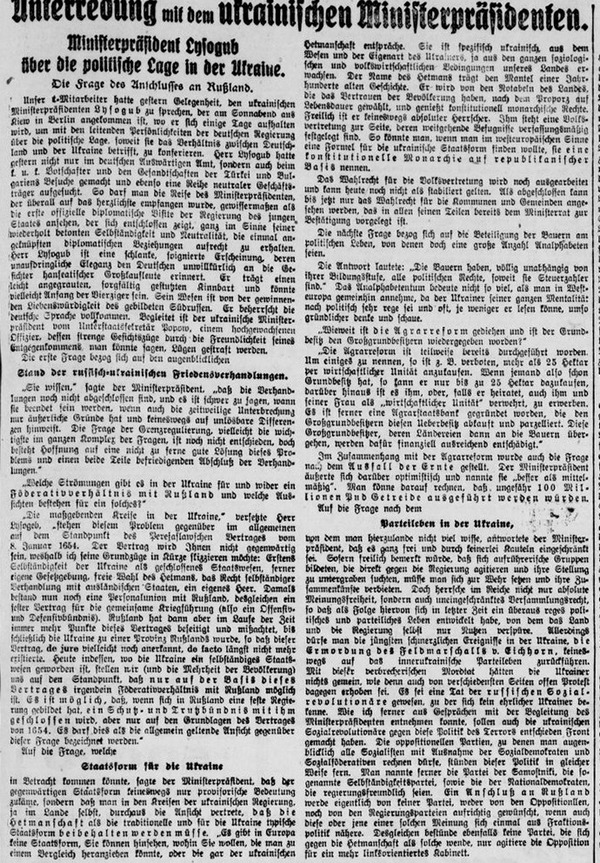 |
| August 19, 1918, pages of Berlin newspaper "Berliner Tageblatt und Handels-Zeitung" featuring interview with Fedir Lyzohub |
In his memoirs Pavlo Skoropadsky left detailed and in general positive evaluation and opinion of the Prime Minister’s work:
"The Head of the Council of Ministers, Fedir Andriyovych Lyzohub, belongs to the family renowned in the Ukrainian history, whose members were not of secondary importance. He is not very high, with grey hair, rather short beard, well-mannered. He makes very favorable impression, especially on foreigners, especially since he speaks fluent French and easily makes personal contact with them".
Hetman secretly conducted search for a new Prime Minister. He offered the office to such famous figures as Petro Doroshenko, Illia Shrag, Dmytro Bagaliy.
Still, even after the Government crisis of October 1918 Fedir Lysogub kept the office as the Head of the new Cabinet, joined by Ukrainian figures. The second term of Fedir Lyzohub’s Government lasted for only three months – October 24 to November 14.
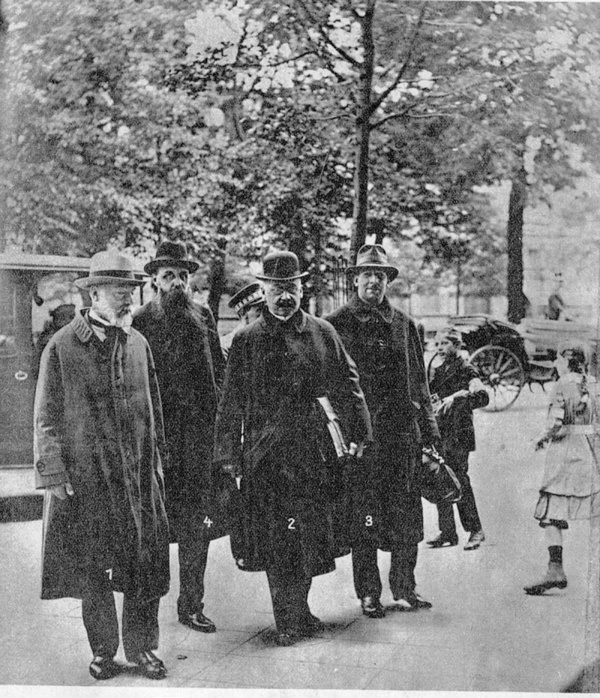 |
| Fedir Lyzohub during his official visit to Germany |
Historical and reference literature both state that Fedir Lyzohub resigned November 14, 1918, after Hetman issued a decree on federation of the Ukrainian State with non-Bolshevik Russia.
However, that is untrue, since on November 8 Fedir Lyzohub left Kyiv and never returned back to the capital; thus he was unable to issue an official resignation.
According to recently published Government minutes, the 7th of May was the first day of Fedir Lyzohub’s work as the Head of the Council of Ministers of the Ukrainian State, and the 7th of November was, de facto, the last day he headed the Government. The Minister of Finance Anton Rzhepetsky acted as interim Prime Minister and presided over Government meetings November 8 to 14 – until Lyzohub’s official resignation. In the meeting logs he is listed as "replacing Chair" or "acting Chair".
Thus, Fedir Lyzohub had maintained the formal position of the Head of the Government during his travel to Crimea. The trip was kept a secret since Pavlo Skoropadsky did not want to reveal that he was seeking contact with the Great Duke Nicolas Nikolayevich.
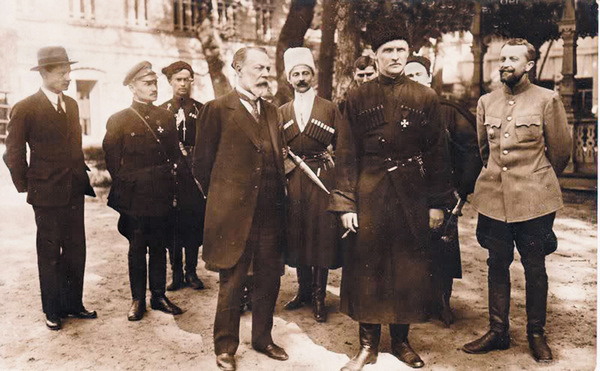 |
| Fedir Lyzohub with Hetman Pavlo Skoropadsky |
There is no information in the Cabinet minutes regarding Lyzohub’s sudden and, at the same time, inconspicuous retirement as the Head of the Government. Hetman does not dwell on this matter in his memoirs either.
Jn November 11 one of the best informed people of the time, Yevhen Chykalenko, in his diary made a note of rumors that Lyzohub, Rzhepetsky and Rogoza had stepped down from their Cabinet duties.
This wasn’t the case, since Rzhepetsky and Rogoza attended meetings up until November 14, and Fedir Lyzohub at the time was unable to file for an official resignation.
The Minister of Interior Viktor Reinbot’s memoirs shed some light on these events: "Soon Prime Minister Lyzohub left for Odesa to regulate relationship with Austrian Command Authority, and negotiate with Crimea on the issue of custom war waged earlier for no reason.
It was also planned to hold a counsel in Odesa on forming the South Alliance: Ukraine, Don, Kuban, Terek".
That might have been an explanation that the Prime Minister gave to his colleagues, though there is no note of this in the minutes.
However, there was a formal need for such a trip. Disorganization of the Austro-Hungarian troops, their spontaneous departure caused critical situation in the South of Ukraine.
The anarchy among the Denube Army got so bad, that on November 9 the Military Governor of Odesa Eduard Belts shot himself. Earlier, the Commander of the Eastern Army Field Marshal Alfred Kraus went back home to Germany, and Fedir Lyzohub had no one to talk to.
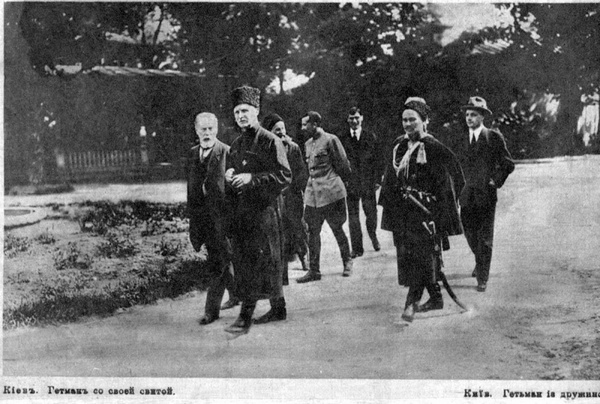 |
| Hetman and Prime Minister |
Preliminary agreement on Crimean autonomy within the Ukrainian State was negotiated with Crimean government delegation in October, however it had never been signed.
At that time the peninsula had already been captured by Denikin Army, and Suleyman bey Sulkiewicz was replaced by famous Kadet Solomon Krym as the Head of the Government.
Newspapers reported that November 11 Fedir Lyzohub arrived to Sevastopol, where he was welcomed by the Black Sea Fleet Admiral Vyacheslav Klochkovsky and the Chief Stuff of the Navy.
Perhaps Fedir Lyzohub intended to expedite transfer of Ukrainian fleet battleships to Germans, but soon Denikin appointed the admirals of Ukrainian navy: Vasyl Kanin was appointed as Commander in Chief of the Black Sea Fleet, and Vyacheslav Klochkovsky – as the General Commander of the Sevastopol harbor.
If we assume Prime Minister’s mission to be diplomatic, it wasn’t a success.
The "quiet" resignation of the Prime minister was initiated by Pavlo Skoropadsky.
With the defeat of Germany, beginning October 1918, Skoropadsky started seeking contact with the Entente members.
This became the objective of the Minister of Foreign Affairs Dmytro Doroshenko’s mission to Germany, and, later, to Switzerland.
Ivan Korostovets, an experienced diplomat, was deployed to Iași, where the leadership and missions of the Entente countries were stationed.
He brought back disappointing news - the Entente members were not going to recognize independence of the Ukrainian State.
Hetman realized, that to get their favor, he needed to demonstrate the change in the country’s political path, which still remained oriented towards the Central Powers, also known as the Quadruple Alliance.
Upon defeat of Germany, Pavlo Skoropadsky decided that the Ukrainian State should become part of renewal of Russia.
Moreover, several attempts were made to turn Hetmanate into initiator and consolidation center for anti-Bolshevik forces that would free Russia from Bolshevik regime.
In early November, in the meeting with the Otaman of Don Republic (later known as the Almighty Don Host ) Pyotr Krasnov at Skhorokhodovo Station near Poltava, Pavlo Skoropadsky suggested to form an alliance: Ukraine, Don Republic, the Volunteer Army, Kuban, Georgia, Crimea - against Bolshevik forces.
 |
| Deputy Minister of Foreign Affairs Olexandr Paltov, Hetman’s personal aid-de-camp Vasyl Kochubei and Prime Minister Fedir Lyzohub |
Pyotr Krasnov embraced the idea, and tried to convince the leadership of the Volunteer Army to join in.
However, Anton Denikin had somewhat different view of fight against Bolshevik Russia, and his own role in that endeavor. Quite reasonably, he envisioned himself as leader of the allied forces, since he had support of the Entente, while the Ukrainian State and the Almighty Don Host de facto had been allies with the Central Powers. Pavlo Skoropadsky was clearly against having Denikin as alliance leader, due to his tense relationship with the Volunteer Army Commander-in-chief.
The "Crimean" mission of Fedir Lyzohub was linked to the fact, that Pavlo Skoropadsky didn’t want Anton Denikin to assume role of liberator of Russia.
The Volunteer Army leaders – late General Mikhail Akekseev, and his successor Lieutenant General Anton Denikin - had been clear in their reliance on alliance with the Entente against the counties of Quadruple Alliance. They condemned Hetman’s alliance with Germans and considered the announced independence of Ukraine a manifestation of "national chauvinism". Anton Denikin wrote about Hetmanat and other newly formed states as those with "German blade and money lurking from behind a ghost of their independence".
Pavlo Skoropadsky maintained relationships with the General Mikhail Akekseev – the founder of the Volunteer Army. He considered his correspondence with the General a private matter. And "had always cooperated", when it came to weapons.
At this, Hetman noted that the Germans "have been watching me closely, so delivering guns to Alekseev, and, later, Denikin has always been a complicated matter". When on October 1918 Mikhail Akekseev died, Pavlo Skoropadsky ordered to conduct solemn Requiem Mass at Hetman’s church and to make press announcement about the General’s death.
However, as soon as Anton Denikin assumed position of the Volunteer Army Commander-in-chief, according to Pavlo Skoropadsky, "the relations have immediately changed; powerful campaign against me and my troops was launched among the officers".
Hetman attempted to improve relationship with the Volunteer Army Headquarters, sending his representative Colonel Olexandr Kyslov to Novocherkask, but received no equal response from the Army leadership.
In his search for the future leader of all anti-Bolshevik forces on the territory of former Empire, which, in turn would prevent Anton Denikin from assuming this role, Hetman sent his Prime Minister on an envoy mission to negotiate with the former Russian Army Commander-in-chief the Great Duke Nicolas Nikolayevich, who was staying at his Dulber estate in Crimea.
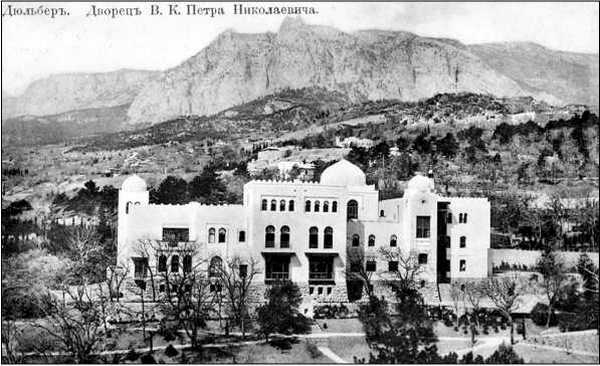 |
| Dulber Palace in Crimea where Fedir Lyzohub went to meet the Great Duke Nikolas Nikolayevich |
The choice of an envoy figure was absolutely grounded, since Fedir Lyzohub was well acquainted with the Great Duke. In fact, he used to be Nicolas Nikolayevich’s Chief of Stuff, during his term as the Caucuses Viceroyalty in 1915-1916.
Fedir Lyzohub paid a visit to the Great Duke in Crimea, but the latter refused Pavlo Skoropadsky’s offer to head anti-Bolshevik forces.
Upon receiving the news of Nicolas Nikolayevich’s refusal, Pavlo Skoropadsky increased his effort in organizing congress of representatives of all the states that immerged on the territory of late Russian Empire. The congress was supposed to be held in Kyiv
On November 16 the Council of Ministers passed a resolution: "To recognize the congress organization as highly desirable".
The Minister of Foreign Affairs Georgi Afanasiev was tasked with establishing connection with all the interested states. The Ministry of Foreign Affairs telegrammed to all the newly formed states, developed program for the congress that was supposed to consider issue of general fight plan against the Bolsheviks, relationships with the Entente, Germany and its former allies, neutral states, and ways of establishing strong government system in Russia.
Pavlo Skoropadsky personally joined the congress organization process. At Hetman’s residency he held meeting with the representatives of the Don Host, Teren Cossack Host, Kuban and Georgia to discuss issues of future alliance and general state of affairs.
Hetman intended to send letters to all of the states that seceded from Russia. The Volunteer Army Headquarters received the offer from the Ukrainian party via government of the Don Republic in the end of November.
Denikin’s Army General Abram Dragomirov sent a letter of agreement to take part in the congress, however, he stipulated that the assembly must take place in Yekaterinograd or Simferopol, since Kyiv was almost surrounded by the Directory rebel troops.
There was also an objection to inviting the Government of Georgia, as it was hostile to Russia and the Volunteer Army. The letter stressed that the Leadership of Volunteer Army was not going to reconsider its relations with the Entente.
Minister Gergi Afanasiyev rushed to inform General Anton Denikin by telegraph that the Ukrainian forces lead by the Hetman were in agreement with the Don Republic, and, concurrently with the Volunteer Army, were heading to fight Bolsheviks to restore the unity of Russia.
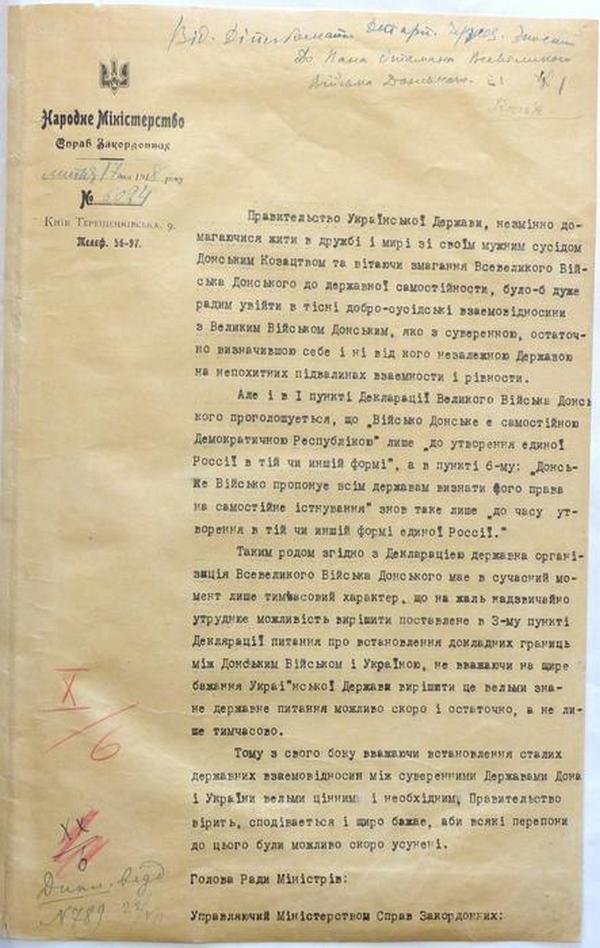 |
| Copy of Ministry of Foreign Affairs of the Ukrainian State letter to Otoman of the Almighty Don Host on good neighborly relations. July 17, 1918 |
In turn, Anton Denikin offered to reach an agreement on the issues of the united front, and common leadership in fight against Bolsheviks, as well as the common representation at international conference.
However, the Entente representative in Kuban announced General Anton Denikin the Commander-in Chief of all the forces acting against Bolsheviks, including Ukrainian. Hetman found himself in a tricky situation: he did not want to recognize primacy of Anton Denikin, and, at the same time, he could not go against the will of the Entente.
Council of Minister’s meeting ruled to delegate it to the Prime Minister Gerbel to orally report to the Volunteer Army representative that the Ukrainian government does not deny the need for common command in the struggle against Bolsheviks, but thinks that such person should not be someone in command of one of the allied armies.
This muted protest made no influence on endorsing Anton Denikin as the allied forces Commander-in-chief.
On November 29 Anton Rzhepetsky, who acted as Prime Minister for the time of Serhiy Gerbels sickness, reported to the Government about the negotiations with the representative of the Volunteer Army regarding "establishing closer communication of the Ukrainian Government with Volunteer Army Leadership".
It was decided to assign 10 million karbovanets from the State Treasury to the needs of its leadership. The Council of Minsters moved to approve such expenses with regard to the fact that Kyiv was almost surrounded by rebels.
That same meeting discussed issue of inviting the Volunteer Army troops "to fight domestic Bolsheviks, mostly in Katerynoslav and Kharkiv governorates".
Thus, during Fedir Lyzohub’s stay in Crimea, the events that happened in Kyiv automatically withdrew his mandate as the Head of Government.
On November 14 Pavlo Skoroparsky announced his commitment to federation with non-Bolshevik Russia and formed a new Government headed by former Minister of Food Affairs Serhiy Gerbel – former Governor of Kharkiv, member of the State Duma, ardent supporter of restoration of the great Russia.
Sure enough, presence of Fedir Lyzohub – Chevalier of the Order of the Red Eagle with close ties to Germany – in this new Cabinet was completely out of question.
Fedir Lyzohub returned to Odesa and attempted to leave for Kyiv. However, the railroad had already been controlled by rebel troops who joined the UNR Directory.
One of Russian officers wrote in his memoirs: "I remember among others the F.A. Lyzohubs carriage, that was standing there on a rail track next to us, and had just arrived from Crimea. Fedir Andriyovych had just been there at the Great Duke Nikolas Nikolayevich with Hetman’s Pavlo Skoropadsky mission".
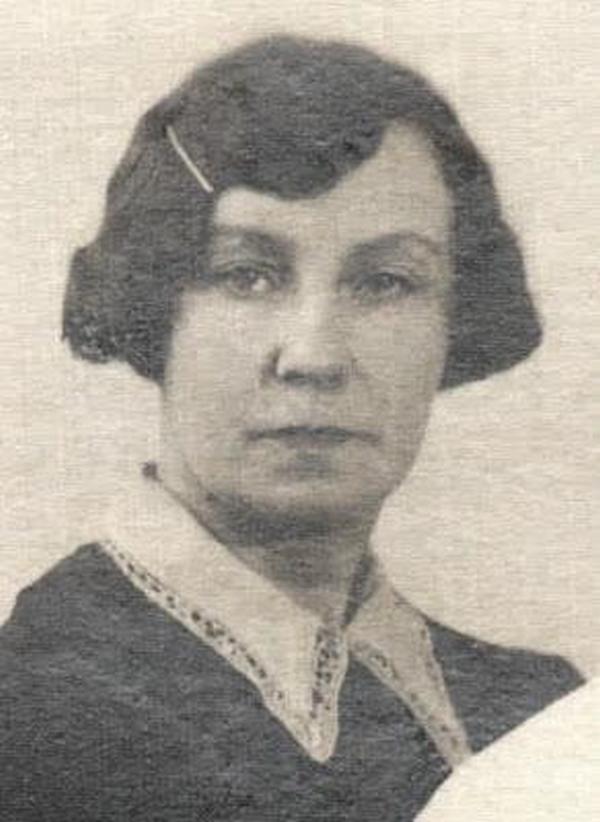 |
| One of Fedir Lyzohub’s daughters – Vira stayed in the Soviet State and worked as librarian |
Lyzohub was unable to return to Kyiv, so he stayed at the territory controlled by the South Russia armed forces. For some time he acted as Ukrainian issue consultant with Pyotr Vrangel Administration. In 1920 he left for the Kingdom of Serbs, Croats and Slovenes, where he died in 1928.
